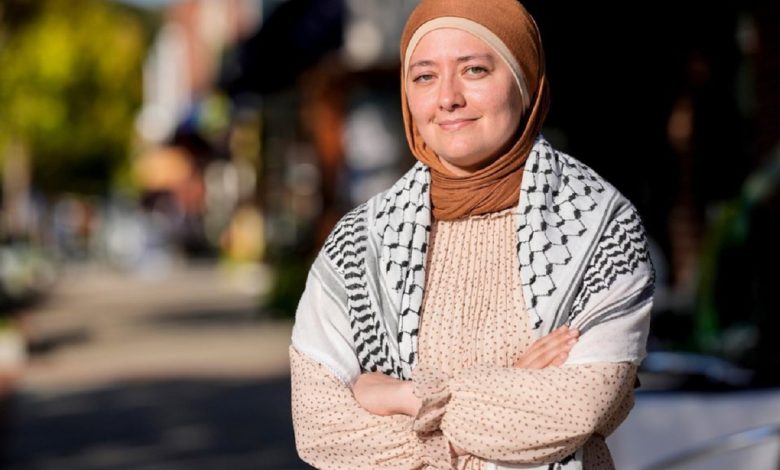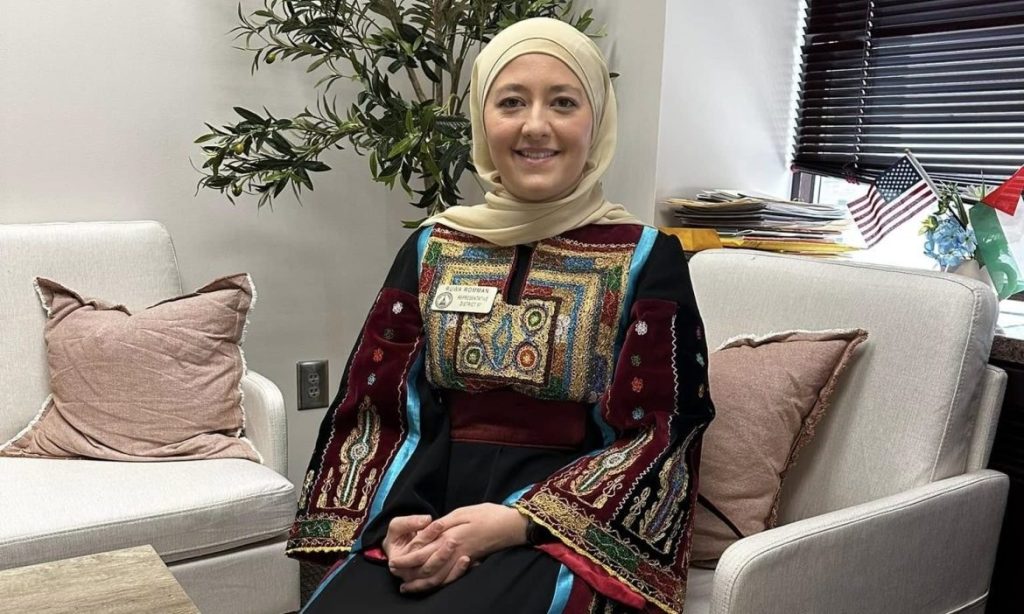How Georgia’s Arab and Muslim Communities Reacted to Ruwa Romman’s Historic Governor Run
Pride, organizing and pragmatic caution as the first Palestinian-American Muslim state lawmaker launches a high-stakes campaign

When State Rep. Ruwa Romman announced her bid for governor of Georgia, reactions among the state’s Arab and Muslim communities ranged from celebration and pride to careful, pragmatic calculation — with some activists seeing historic representation and others warning that the campaign will face intense scrutiny and backlash.
Pride and hope: representation matters
Many Arab-American and Muslim leaders framed Romman’s candidacy as a milestone for visibility and political inclusion. Community members told local outlets that seeing a Palestinian-American Muslim woman run for the state’s top office signals to young people and newcomers that government can reflect their identities and concerns. Romman’s identity — she openly wears the hijab and has been a prominent voice on Palestinian issues — was described by supporters as a strength that broadens the Democratic tent and energizes voters who felt unheard.
Political organizing and energized grassroots
Progressive organizers and immigrant-centered groups have responded by mobilizing — viewing Romman’s announcement as an opportunity to build a multiracial, working-class coalition focused on affordability, health care, and education, not only foreign-policy symbolism. Local reporting highlights enthusiasm in parts of Gwinnett County and among younger activists who helped elect Romman to the state House in 2022. These groups emphasize door-to-door outreach, youth engagement, and reaching “uncommitted” voters who have grown disaffected with establishment politics.

Concerns about backlash and politicization
At the same time, community leaders interviewed by several outlets cautioned that Romman will face targeted attacks and misinformation — including Islamophobic and xenophobic narratives — that could complicate the campaign. Conservative media and some online actors have already attempted to frame her run in cultural terms, raising fears among organizers that they will have to defend her identity repeatedly rather than debate concrete policy choices. Analysts noted the paradox: representation advances inclusion, but it also invites intensified scrutiny in a polarized environment.
Internal party tensions and “uncommitted” voters
Romman’s candidacy also reopened debates within Georgia’s Democratic coalition. Some progressives praised her for speaking up at national moments (including advocating for Palestinian civilians in 2024), while centrist figures worry about gaffes that opponents could exploit. Many in the Arab and Muslim communities — particularly those who backed the “uncommitted” movement last year — see Romman as a vehicle to press Democrats to take account of diverse viewpoints on foreign policy as well as local issues like hospital closures and low wages.
Practical caution from community elders and faith leaders
Faith leaders and older community members expressed both pride and caution: they welcome the historic candidacy but stress that electoral success will depend on building broad coalitions with Black, Latino, white working-class, and suburban voters. Several Muslim civic groups, while supportive, emphasized the need for sustained, strategic outreach beyond symbolic victories so the campaign can translate visibility into votes.

What the reaction means politically
-
Mobilization: Expect intensified grassroots organizing in Romman’s home turf (Gwinnett and Metro Atlanta), where immigrant communities and younger voters are concentrated.
-
Counter-mobilization: Watch for rapid conservative pushback and online disinformation that targets identity as well as policy.
-
Coalition tests: Romman will need to broaden appeal to older and moderate voters who may share concerns about pocketbook issues (education, health care, wages) rather than foreign-policy symbolism alone.



